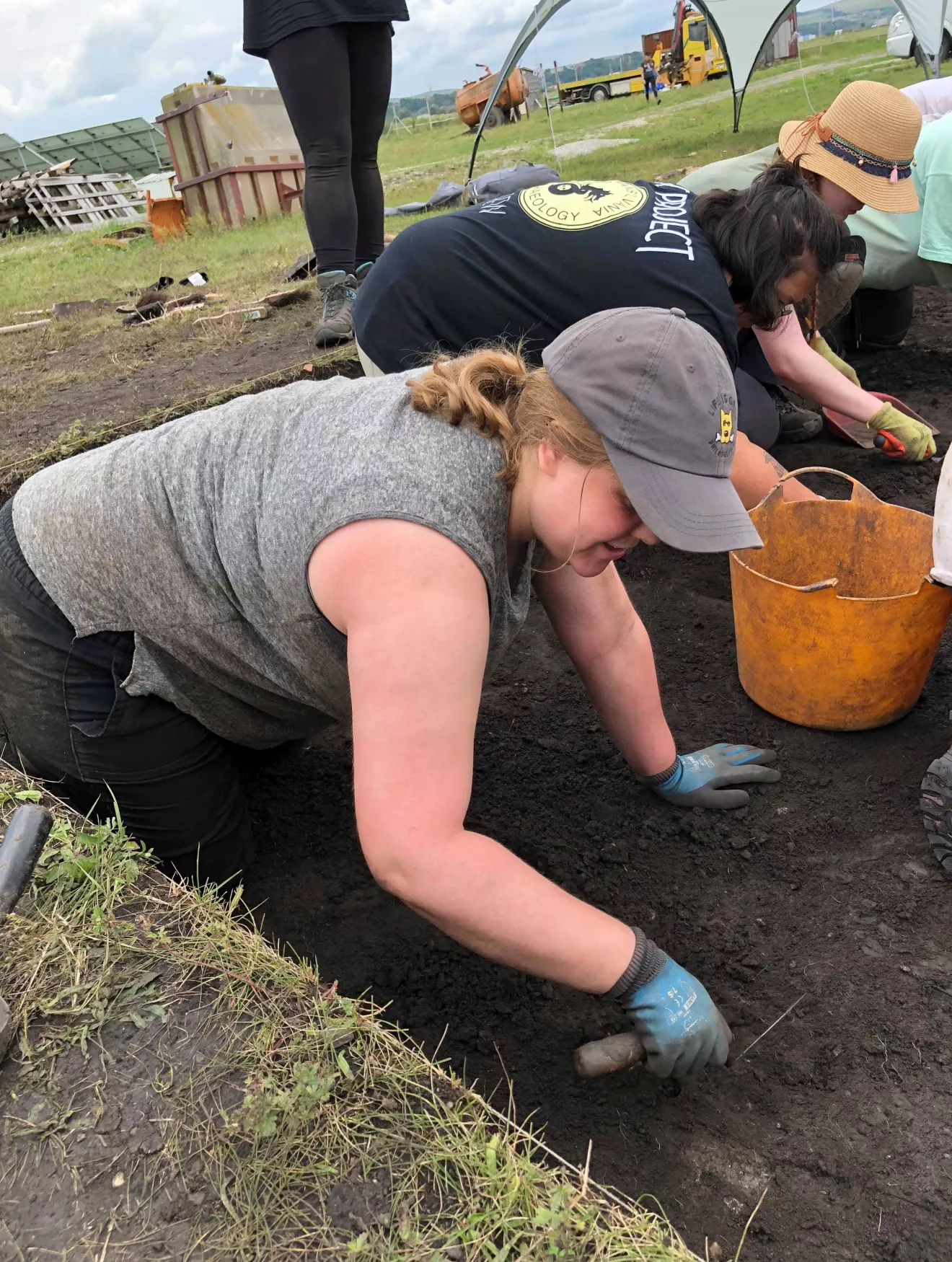Elizabeth McGuire '20, Anthropology and Archaeology Major, Participates in Transylvania Bioarchaeology Summer Fieldschool

A number of Bryn Mawr College students applied for and received funding to conduct research projects overseas this summer through the Global Bryn Mawr Student Fellowship. Those students were asked to share their experiences through words and images.
Name: Elizabeth McGuire
Class Year: 2020
Major: Anthropology, Classical and Near Eastern Archaeology
Overseas study or project: Transylvania Bioarchaeology
Location: Cluj-Napoca, Romania
Q. What led you to apply for this overseas study or project?
A. Last fall, I took Bioarchaeology [in the Anthropology Department] with Professor Caroline VanSickle and I absolutely loved it! As a Classical and Near Eastern Archaeology major, I had taken a lot of classes that focused on material culture. It was interesting to learn what skeletal remains can tell us about past life, including health, diet, migration, and trauma. That class inspired me to look into related summer opportunities and graduate programs. In collaboration with my major advisors, I decided to apply to this field school because it is one of the most affordable and well-rounded field schools open to undergraduates with limited experience. As the youngest and least experienced student on the project this summer, I appreciated the staff’s dedication to meeting each student where they were in their educational journey.
Q. What did you do while on your overseas study or project?
A. Transylvania Bioarchaeology is currently working on a rescue excavation in the town of Jucu de Sus. Although the site has been occupied many times from the Neolithic period onward; this summer we focused on a medieval cemetery adjacent to a previously excavated Roman villa. Technically the land is protected, but companies are actively developing the land and the ongoing construction is destroying the burials. Over the course of the field school, we continued to recover remains, their associated material culture, and establish biological profiles for each individual.
At the beginning of the field season, we spent the majority of our time on site doing heavy excavation using mattocks and shovels to get down to the archaeological layer. We used trowels to clean the area, so we could identify signs of grave cuts and fill. Then we could begin the process of excavating the burials. During our time in lab, we cleaned the skeletons and worked to age, sex, and record pathological conditions. Lab days also included lecture and discussion. We talked a lot about the limitations of bioarchaeological methodology and ethical considerations. It is easy to over-interpret skeletal evidence and to make assumptions about past life. Throughout this field school, I learned what can be extrapolated from archaeological remains and what cannot, which will help me critically approach bioarchaeological literature in the future.
Q. What did you learn that surprised you?
A. I knew that archaeology is inherently destructive, but it wasn’t until I worked through the process from beginning to end that I realized just how much material and information is lost along the way. We were as careful and meticulous as possible with recovering remains. Most burials appeared to be well preserved, however the heavy machinery that had been driving over the area for months, effectively crushed the bones. When we block lifted remains, the bones began to crumble. After recovery, we washed the skeletons and continued to lose more material. This surprised me at first; although it was inevitable, it was also incredibly disappointing.
Q. What was your favorite part of this experience?
A. Exploring Transylvania! The project was based out of Cluj-Napoca and we stayed in a hostel about a 25-minute walk from the city center. Cluj is a beautiful city and there were a lot of events during the time I was there including street food and music festivals. My roommates and I enjoyed trying traditional food and visiting different coffee and tea houses. By the end of the program, we had tried nearly every coffee shop within a three-mile radius. Halfway through the summer, the program sponsored a trip throughout the region to put our site into context with the surrounding area. We learned about the history of Romania, visited important historic sites, and returned with a better understanding of Transylvania. The project directors also brought us to a number of cheesy tourist attractions including the birthplace of Dracula and the famous salt mine in Turda!
Q. What advice or guidance would you offer future students?
A. I would highly recommend getting in touch with your major advisor to talk about summer plans and opportunities within your chosen field! The earlier these conversations happen, the more time there is to learn about and apply for funding. I had an amazing experience this summer in Transylvania, which would not have been possible without the support I received from my advisors and Bryn Mawr. International placements are great opportunities and incredibly exciting! If you are interested in going abroad, I would highly recommend it.
Through the Global Bryn Mawr Student Fellowship, established by the Overseas Study and Engagement Committee at Bryn Mawr College, Bryn Mawr students can apply for funding of up to $1,500 to support overseas-related travel in the form of study abroad, internships, or organization-led projects. Applications are accepted on a rolling basis.